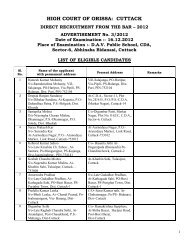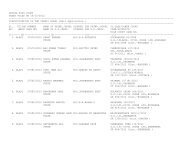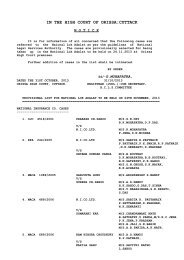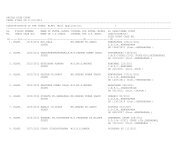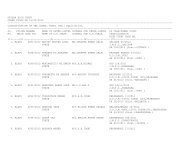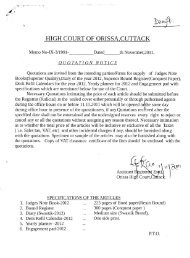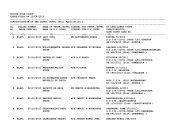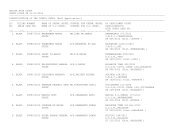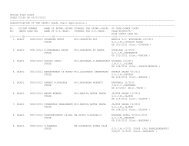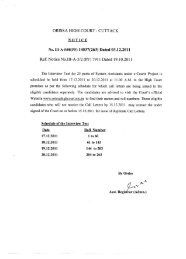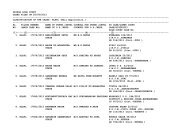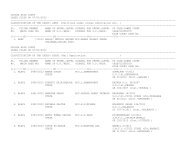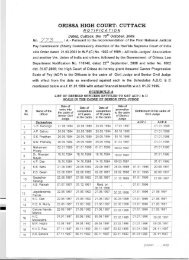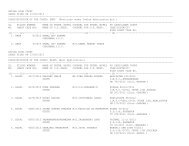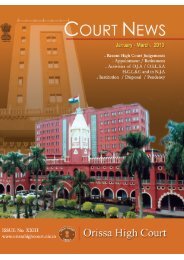ORIGINAL JURISDICTION - Orissa High Court
ORIGINAL JURISDICTION - Orissa High Court
ORIGINAL JURISDICTION - Orissa High Court
Create successful ePaper yourself
Turn your PDF publications into a flip-book with our unique Google optimized e-Paper software.
55<br />
lying dead with ligature mark on her neck. Suspecting foul play, they<br />
informed the police. In course of postmortem examination, the doctor,<br />
P.W.11, who conducted postmortem examination, was of the opinion that the<br />
death of the deceased was homicidal due to strangulation. Even accepting<br />
the evidence of P.W.11 that the deceased died a homicidal death, the only<br />
circumstance available against the appellant is that he had given wrong<br />
information to the family members of the deceased by stating that the<br />
deceased was suffering from loose motion and vomiting. There is no<br />
MANUA GOUDA -V- STATE OF ORISSA [L.MOHPATRA,J.]<br />
material whatsoever on record to show that in the night of occurrence the<br />
appellant and the deceased were together in the house of the appellant. In<br />
absence of any material to the above effect, we are of the view that the trial<br />
court was not justified in coming to a finding that under Section 106 of the<br />
Evidence Act, the burden was on the appellant to explain the circumstances<br />
under which the deceased died. In this connection, reference may be made<br />
to a decision of the Apex <strong>Court</strong> in the case of Subramaniam Vrs. State of<br />
Tamil Nadu and another reported in (2009) 43 OCR(SC)-591. The Apex<br />
<strong>Court</strong> in the said case observed that when the husband and wife remained<br />
within the four walls of a house and death by homicidal takes place, it will be<br />
for the husband to explain the circumstances in which she might have died.<br />
The <strong>Court</strong> further held although the same may be considered to be a strong<br />
circumstance but that by alone in absence of any evidence of violence on<br />
the deceased cannot be held to be conclusive. Under such circumstances, it<br />
may be difficult to arrive at a conclusion that the husband and the husband<br />
alone was responsible for the offence.<br />
So far as present case is concerned, as stated, there is no iota of<br />
evidence to establish that in the night of occurrence both the appellant was<br />
present in the house. Therefore, even accepting that the deceased died a<br />
homicidal death, the possibility of somebody else being responsible can not<br />
be ruled out.<br />
7. For the reasons stated above, we are of the view that the prosecution<br />
has not been able to establish the charge against the appellant. Accordingly,<br />
we allow the appeal and set aside the impugned judgment.<br />
Appeal allowed.



